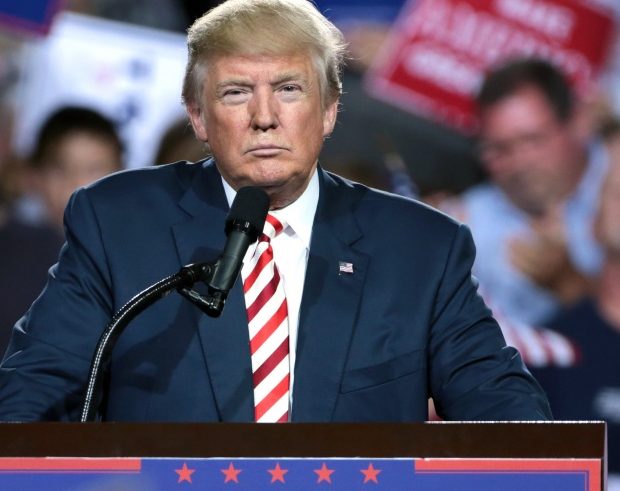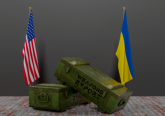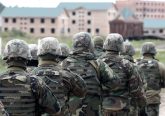By all accounts the relationship between President Donald Trump and the Kremlin holds the makings of a dark, Hollywood thriller. Trump is a US President at war with his own intelligence agencies, whilst denying – only to later admit – Russian interference in the election. Freshly inaugurated, he already faces comparisons to a modern-day Manchurian Candidate, referring to the 1959 novel about a brainwashed president controlled by sinister, external forces.
But how fair is this? And do we really know what the Russians are up to?
As a political scientist, my research examines the tools of contemporary warfare and influence used by the Kremlin. Thus far I have identified over 40 tools of Russian state power, military and non-military. The tools encompass the fields of governance (including religion, culture and law), economics and energy politics and political violence, military power, diplomacy, public outreach and information campaigns.
Readers may be aware of some of them from the lurid headlines of recent years. Assassinations in London, President Putin’s Championing of Russian Orthodox Church as an arm of state power, cyber warfare against countries and corporations, the use of proxy and paramilitary front groups, attempted coups in the Balkans, loans to the French National Front, the use of Russian forces in eastern Ukraine and in Georgia.
In truth, most states use at least some of these tools. And many are not new. But only Russia has used such a variety and integrated them in a way that, arguably, has led them to become more than the sum of their parts. Since the early 1990s, Russia has undermined governments in several post-Soviet states, threatened nations elsewhere, and is fast building influence with populist politicians – from right-wing groups to the British far-left – in leading Western nations. In so doing, Russia is pioneering an integrated form of Strategic Art that combines all the tools of state power. Weak compared to other states, Russia is playing its hand aggressively and with skill.
Hotel warfare
Perhaps the most famous technique nowadays is the collection of compromising material, known in transliterated Russian as komprometiriushii material—kompromat for short. It is a term surely making an early run for Oxford Dictionary’s word of the year. If the Russians have been attempting to collect damaging information on Trump, it won’t be the first time. The collection of kompromat on politicians and those in positions of authority was long practiced by the former KGB.
In fact, President Putin’s own trajectory to power may have received a powerful boost due to kompromat, when it was used in the late 1990s to destroy Russia’s Chief Prosecutor, Yuri Skuratov, then preparing indictments against former President Boris Yeltin’s circle. Shuratov was caught on film with two prostitutes and the video broadcast on Russian TV. The disgraced Mr Skuratov then suffered a heart attack, and the indictments were dropped. The man who was then head of the FSB, successor to the KGB? Vladimir Putin.
Historically, Kompromat was one of a series of tools used in a form of subversion warfare known as “Active Measures”. Other tools included disinformation, blackmail, assassination and fifth columnists. Whereas warfare was the preserve of the Red Army, Active Measures was the preserve of the KGB and the Communist Party.
In a 1982 report, the US House Committee on Intelligence defined Active Measures as: ‘manipulation and media control, written and oral disinformation, the use of foreign communist parties and front organizations, clandestine radio broadcasting, manipulation of the economy, kidnappings, assassinations, paramilitary operations, and support of guerrilla groups and terrorist organisations.’ It was the warfare of political insurgents and revolutionaries.
So, to return to the two questions, would the Russians collect on Trump and how would they use it?
Yes, they would certainly collect. It would be strange not to. But why? The Russians would do so first to understand Trump and second to manipulate him. Such gaming of individuals and states has been on occasions referred to in some Russian circles as “Reflexive Control”. Reflexive Control can be defined as the reading and manipulation of an opponent to get them willingly to react in a way that leads to their own defeat. It is alleged that Russia provoked the Georgians in the 2008 Russo-Georgia war using these techniques.
By collecting information on Trump the Kremlin would clearly wish to “get” something compromising. Although one could argue that Trump has broken so many rules that kompromat might have less of an effect on him. Were there to be impeachable material, this could leave him open to blackmail or potentially destroy his presidency. It would also have a profound, diminishing effect on US influence around the world.
However one should not necessarily look for a single aim. If Russia cannot “control” him, they can use his presence to damage liberal democracy and Western alliances and relationships. Arguably, this is already happening. For example, President Trump sows doubt in the integrity of US institutions when he quotes WikiLeaks’ Julian Assange and the Kremlin over his own intelligence agencies. He undermines alliances when he argues that NATO is out-dated. He alienates and alarms European and Chinese leaders with unguarded comments.
And yet we should probably wait before final judgement. There will be further twists to this story. There may genuinely be a rapprochement between the US-led West and Russia (although this would assume that President Putin wants nothing more than flattery and attention). However, if Russia does want to harm the West, and in particular if it desires the weakening of NATO and Western liberal democracy, Trump’s election may not herald a fundamental change in relations, but merely make them more febrile and high risk.
The Chinese philosopher of war, Sun Tzu, said the greatest victories are won without arms. The defeat of Hillary Clinton and the election of Donald Trump, whether there is Kompromat on him or not, whether he is an innocent man or not, a useful idiot or the Manchurian candidate personified, is currently being perceived as another remarkable Russian triumph as the Kremlin again rewrites the rules of conflict.







